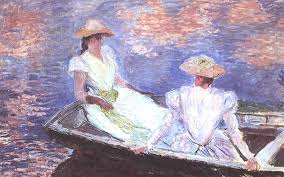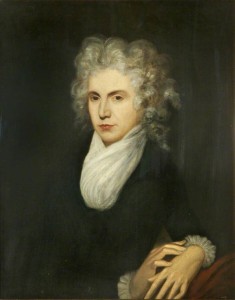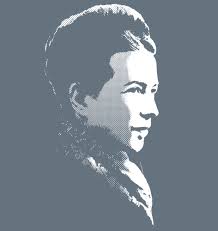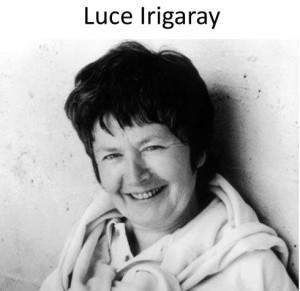Feminists believe that society is based on unequal division between men and women. The “first wave”feminists were concerned with equality between the sexes. “Second wave” feminists are more concerned that what is special to women be recognized and valued as important.
Mary Wollstonecraft (1759-1797):
Wollstonecraft‘s most influential book, “A Vindication of the Rights of Women”, was published in 1792. It called for the abolition of the inequalities between men and women. At this time women could not vote or own property. They belonged to their husbands. Wollstonecraft argued that “mind has no sex”, and so women should be entitled to complete personal and economic freedom. For her trouble she was called a “hyena in petticoats” and “philosophizing serpent”. Her daughter, also named Mary, married the poet Shelly and wrote the novel “Frankenstein”(1818).
De Beauvoir‘s book “The Second Sex” (1949) began the second wave of feminism. The book shows how men are seen as normal and women as the negative “other” or “second” sex. De Beauvoir argued that this view of women dominates all aspects of society and influences how women are treated and how they treat themselves. She said that “one is not born, but rather becomes, a woman”. De Beauvoir wanted to expose the male mask that Western philosophy has worn over the centuries.
Irigaray argues with de Beauvoir’s view. As a practising psychoanalyst, she has been influenced by Freud’s work. However, she took exception to Freud’s idea that women envy men’s genitals and so view themselves as lacking what it takes to be a male. Irigaray believes that women’s oppression goes beyond past and present economic and social structures. She argues that language itself is male-oriented and so can never express what is to be female (a simple example is that God is referred as He). Irigaray feels that women are forced to speak a language that does not value or represent them. She calls for the creation of a new, more fluid, feminine form of language, capable of reflecting woman’s multi-dimensional nature.



